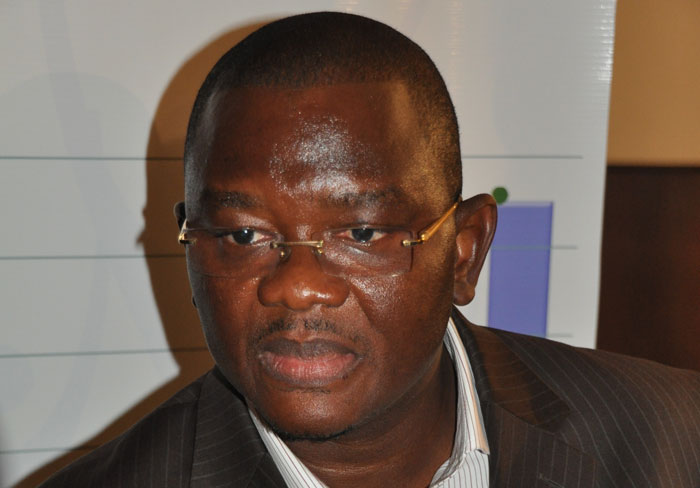64% Ghanaians not covered by NHIS
Arku Jasmine
Health
 Ghana’s National Health Insurance Scheme (NHIS) excludes 64 per cent of the population with a majority who are poor, Oxfam, an international non-governmental organisation, has said.
Ghana’s National Health Insurance Scheme (NHIS) excludes 64 per cent of the population with a majority who are poor, Oxfam, an international non-governmental organisation, has said.It said even though Ghana’s NHIS had been labeled as a success, it covered just 36 per cent of Ghanaians while the remaining 64 per cent continued to make out-of-pocket payments to access health care.
This was contained in a report on Financing Universal Healthcare launched by Oxfam to draw the world’s attention to alternatives to achieving universal healthcare.
Healthcare Report
The report warned that health insurance schemes being promoted by some donor agencies and governments in developing countries were actually excluding the poorest and most vulnerable people.
The international agency said that usually only those who were already better-off were able to sign up, leaving the majority of citizens without cover and forcing the poorest to pay often huge, out of pocket expenses to get health care.
The report said for the African countries that had introduced health insurance, low levels of enrolment were proving to be a major and recurring challenge.
Ghana’s NHIS
In Ghana the NHIS covers the direct costs of health services and medicines for most common diseases in Ghana.
The scheme, introduced in 2004, is financed from a 2.5 per cent levy on VAT (70 per cent), payroll deductions from formal sector workers (22 per cent) and annual premium contributions from informal sector workers (five per cent).
“Although the insurance premiums paid by informal sector workers are subsidised, large numbers of Ghanaians cannot afford the NHIS premiums, which range from $3 to $22 per year. So while every citizen pays for the NHIS through the 2.5 per cent levy on VAT, the majority of families on low incomes are not enrolled in the NHIS and therefore do not benefit,” the Report stated.
Oxfam said the misguided preoccupation with insurance was also leaving other funding methods largely unexplored and mentioned improving tax collection could raise up to $269 billion a year, giving developing countries the potential to double their health budgets.
One reason countries are so keen to implement insurance is a false notion that it will generate extra money for health budgets, when in reality it raises very little.
Healthcare Cost
Kevin Roussel, Head of Oxfam’s Essential Services Campaign, said: “Three people every second are forced below the poverty line because of catastrophic health care costs, but this obsession with insurance as the answer is leading poor countries down a blind alley.
“Most insurance schemes are a lose-lose situation. They fail to reach the poorest people and yet collecting insurance premiums costs a huge amount to administer without raising any significant amounts of cash.”
Using Tanzania as an example, the report said 10 years after it was introduced in Tanzania, only 17 per cent of the population had health insurance and Kenya’s National Hospital Insurance Fund covered only 18 per cent of Kenyans, despite the fact it was established nearly 50 years ago.
The international agency said developing countries were being derailed from achieving Universal Health Coverage (UHC) – a goal to make sure all citizens get the health services they needed without suffering financial hardship – because governments, donors and multilaterals, including the World Bank and the UN’s International Labour Organisation, had historically put too much emphasis on insurance schemes as the solution, even though they have failed to improve access to health care for the poorest.
Oxfam therefore called on the World Bank to encourage governments to look for fairer ways to fund UHC, within the framework of President Jim Kim’s new strategy to end extreme poverty and boost shared prosperity.
“Universal Health Coverage should mean everyone gets the same financial protection and access to the same high quality health services, regardless of their employment status or ability to pay.”
Oxfam’s report argued that even the poorest countries could increase revenue by improving existing tax collection systems, removing unnecessary tax exemptions and introducing new progressive taxes.
“Gabon, for example, raised $30 million for health with a tiny levy on the profits of companies that handle remittances and a tax on mobile phone operators.”
The Report also said tax dodging by multinational enterprises could save developing countries an estimated $160 billion a year – more than four times the amount spent on health care by all the governments in Sub-Saharan Africa combined and called for global action to tackle the issue
Kevin Roussel therefore advised Countries to focus on finding home-grown health financing solutions that were universal and equitable and urged donors to stop pushing unproven insurance schemes which in many cases actually reinforced inequality.
Source: GNA/Ghana